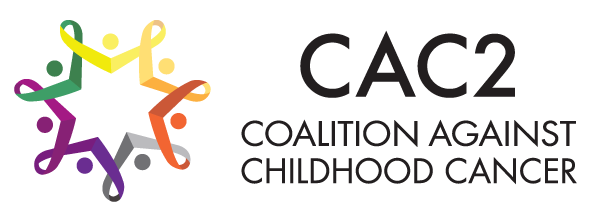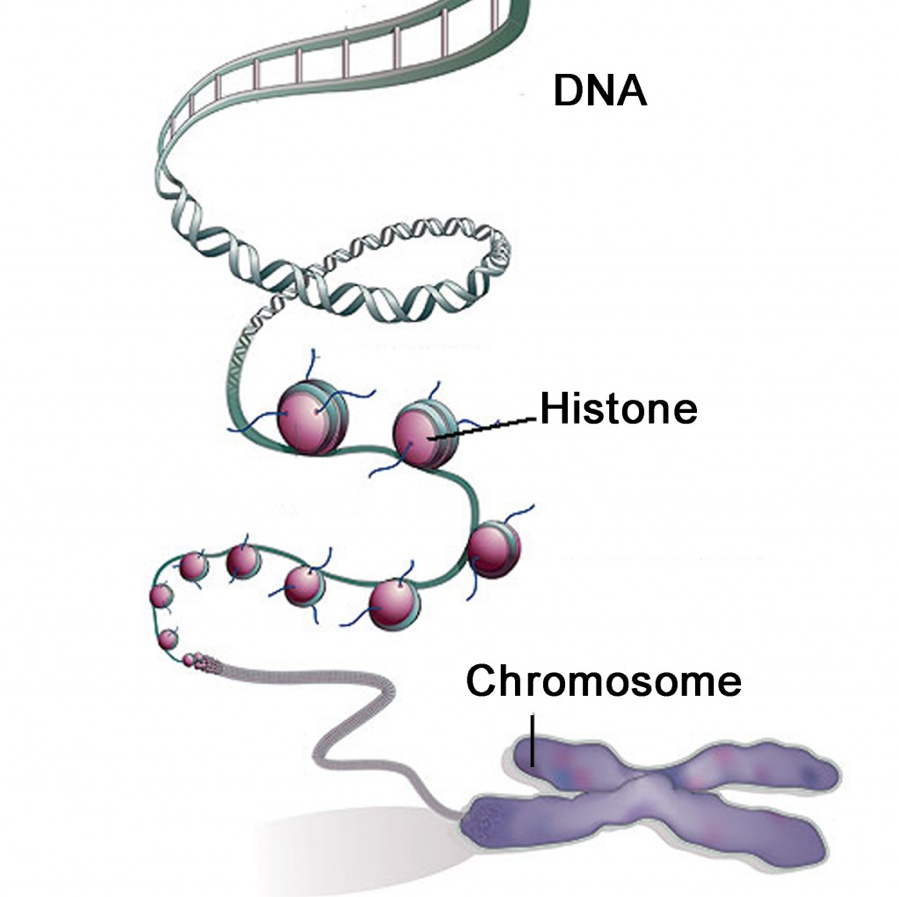CAC2 Research Explained
CAC2 members who are also professionals in the field of cancer research find and curate important work and provide pointers and explanations for our general membership. Raquel Sitcheran, PhD found and curated the three articles cited below.
One of the most remarkable findings in childhood cancer research in recent years has been the discovery that defects or mutations in genes that encode histones are directly linked to tumor growth. Histones are proteins that bind DNA and control how DNA wraps and coils itself to form more condensed chromosomes (see Figure). They not only provide structural support for DNA/chromosomes, but also help control the activity of specific genes, and as such, they have important functions in cell growth and cancer. Histones mutations occur at high frequency in pediatric cancers such as diffuse intrinsic pontine glioma (DIPG), a deadly brain tumor that is located in a part of the brainstem called the pons and is the number one cause of brain-tumor-related deaths among children. Nearly 80% of DIPG tumors harbor mutations in histone H3 genes, which are often termed “oncohistones”. About 95% of chondroblastomas, a rare bone cancer in adolescents, are associated with a similar mutant oncohistone. Overall, a better understanding of the genes that are misregulated by oncohistones, and the identification of drugs that modify the histones to alter their mutant activity, will facilitate the development of improved therapies for childhood tumors.
References:
Oncohistones: drivers of pediatric cancers. Mohammad, F., and Helin, K. (2018). Genes Dev 31, 2313–2324.
Spatial and temporal homogeneity of driver mutations in diffuse intrinsic pontine glioma. Nikbakht, H., Panditharatna, E., Mikael, L.G., Li, R., Gayden, T., Osmond, M., Ho, C.-Y., Kambhampati, M., Hwang, E.I., Faury, D., et al. (2016). Nat Comms 7, 11185– 11188.
Fang, D., Gan, H., Lee, J.H., Han, J., Wang, Z., Riester, S.M., Jin, L., Chen, J., Zhou, H., Wang, J., et al. (2016). The histone H3.3K36M mutation reprograms the epigenome of chondroblastomas. Science 352, 1344–1348.



